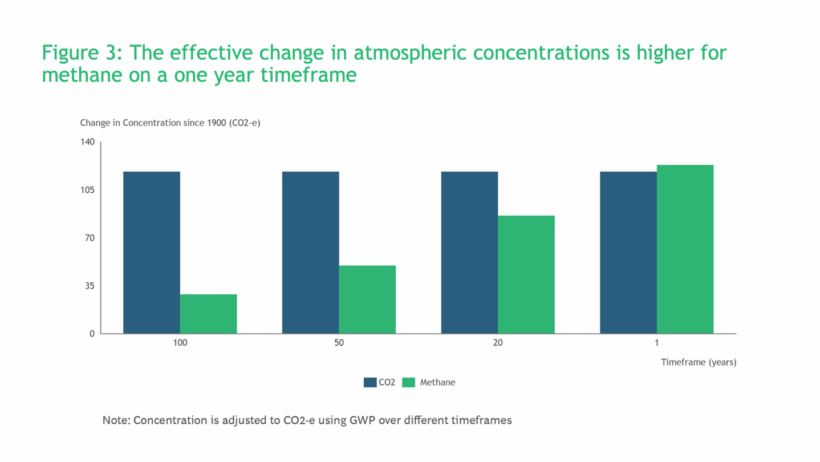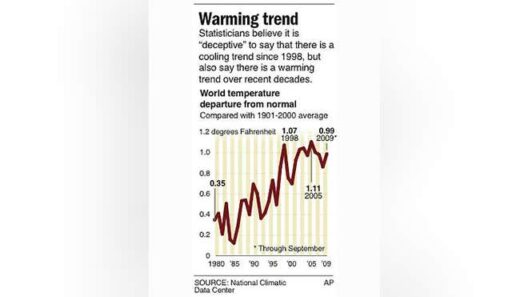What’s the Deal with Methane? And How It’s Supercharging Global Warming
Methane, often overlooked in the shadow of carbon dioxide, is a potent greenhouse gas that is significantly accelerating climate change. This colorless, odorless gas, which is emitted during the production and transport of coal, oil, and natural gas, as well as from livestock and other agricultural practices, has garnered attention for its astonishing ability to trap heat in the atmosphere. Understanding the role of methane in the context of global warming is crucial for comprehending the broader climate crisis.
To grasp the urgency of addressing methane emissions, one must first recognize its overwrought efficacy as a greenhouse gas. Methane is estimated to be approximately 28 to 36 times more potent than carbon dioxide over a century. However, its immediate effect is even more alarming. Over a 20-year period, methane’s heat-trapping capability escalates to more than 80 times that of CO2. This immense global warming potential has made it a focal point of climate discussions, as it suggests that short-term strategies to curb methane emissions could yield significant climate benefits.
So, how is methane generated? The sources are diverse and multifaceted. Agricultural activities, especially livestock production, are notorious for methane emissions. When ruminants, such as cows and sheep, digest their food, they produce methane as a byproduct, which is released into the atmosphere during belching. This phenomenon, known as enteric fermentation, accounts for a substantial proportion of methane emissions in the agricultural sector.
Landfills also serve as prolific sources of methane. Organic waste decomposition in anaerobic conditions—where oxygen is absent—releases methane as a byproduct. This process underscores the importance of waste management practices; reducing organic waste in landfills or enhancing composting efforts can drastically diminish methane generation.
Additionally, the extraction, production, and distribution of fossil fuels represent significant methane sources. Natural gas, often heralded as a cleaner alternative to coal, primarily consists of methane. Leakages occur throughout the supply chain—from drilling to transportation—contributing considerably to atmospheric methane levels. Studies suggest that methane emissions from oil and gas operations may be underestimated, indicating a dire need for more rigorous monitoring and regulation in the industry.
As alarming as the sources of methane may be, the ramifications are even more disquieting. The iceberg beneath its surface is the accelerating climate feedback loop that methane exacerbates. The heat trapped by methane contributes to rising global temperatures, which has far-reaching effects, including the melting of polar ice caps, rising sea levels, and extreme weather patterns. The implications of these changes are dire: increased flooding, prolonged droughts, and more severe hurricanes threaten not just ecosystems but human populations as well.
Moreover, as the planet warms, other greenhouse gases are released from natural reservoirs. For instance, thawing permafrost releases both methane and carbon dioxide, further complicating the climate crisis. This seditious synergy creates a feedback loop, whereby climate change begets more greenhouse gas emissions, which in turn exacerbates climate change. It is a vicious cycle that will take concerted, immediate, and global action to break.
Mitigating methane emissions requires a multi-pronged approach, touching on technological, regulatory, and behavioral changes. Innovative solutions, such as methane capture systems in landfills or dairy farms, can diminish emissions significantly. Technologies that utilize advanced sensors and monitoring systems can help detect and repair leaks in fossil fuel infrastructure, making the gas less harmful in its transport. However, the implementation of such technologies necessitates robust policy frameworks and incentives to encourage compliance and investment.
Regulatory measures can also catalyze changes in methane emission practices. Governments worldwide must enact stringent regulations to cap methane emissions from major industries and incentivize alternative practices in agriculture and waste management. International collaboration will be paramount. The Global Methane Pledge, which aims to reduce global methane emissions by 30% by 2030, exemplifies a step in the right direction, but achieving this goal requires commitment and accountability from all participating nations.
Equally crucial is transitioning towards a sustainable, low-carbon economy. Shifting to renewable energy sources not only curtails methane emissions from fossil fuels, but also advances energy independence and can create new job opportunities. Investing in publicly funded research to explore innovative agricultural practices can also pave the way for a more sustainable future, enhancing both food security and ecological balance.
Concurrently, raising public awareness and altering consumer behavior can catalyze impactful change. Individuals can contribute to reducing methane emissions by minimizing meat consumption, reducing food waste, and advocating for better waste management practices. A collective grassroots move towards sustainable living can resonate on a larger scale, influencing corporate and governmental policies alike.
In conclusion, the matter of methane is one that we cannot afford to overlook. Its potential to exacerbate the climate crisis is profound, and the urgency to mitigate its emissions must be underscored in global conversations surrounding climate action. By addressing the deeper reasons behind methane emissions—whether through regulatory frameworks, technological innovation, or grassroots activism—we can stimulate meaningful change that contributes to the preservation of our planet. As we delve deeper into the complexities of climate change, the prominent role of methane must remain a pivotal focus in our collective strategy to combat global warming.








